Cannes Diary #5: Genies, Spies, Influencers, and Xenophobia
 Sunday, May 22, 2022 at 3:00PM
Sunday, May 22, 2022 at 3:00PM by Elisa Giudici
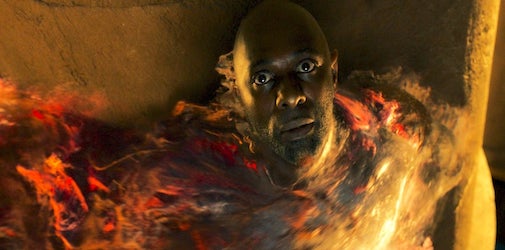
Sometimes I wish people who plan the daily schedule of festivals would love their audiences more. Placing a Cristian Mungiu movie at the end of very long day of screenings is a challenge. Even the most hardy of festivalgoers might have trouble. Why not use a more energetic movie for the 10 PM slot like Ruben Östlund’s Triangle of Sadness? Sorry for whining a little, but sometimes the real struggle is to give every movie the right chance to shine. Revising titles after seeing them at festivals throughout the years, I've noticed that late night spots sometimes result in harsher reviews than the film deserved.
After the jump three main competition films plus the buzzy Three Thousand Years of Longing from George Miller starring Idris Elba and Tilda Swinton...
THREE THOUSAND YEARS OF LONGING by George Miller (Australia)
OUT OF COMPETITION
After Mad Max: Fury Road everything Miller touches goes in the folder “unmissable”. Three Thousand Years of Longing is all but an event. It's a strangely intimate, overly-talky, restrained by space yet visually imaginative tale of tales. Based on a short story by A.S. Byatt that Miller has eyed for an adaptation since the 1990s, Three Thousand Years of Longing explores the strange encounter between Arithea (Tilda Swinton) a solitary narratologist content with her life and a Djinn (Idris Elba) who erupts from a glass bottle she finds in a shop at a bazaar in Istanbul.
More than one-half of the film is spent in a fancy hotel room (the one in which Agatha Christie wrote Murder on the Orient Express). It's essentially a conversation film between two strangers studying each other, longing for understanding more than for physical touch. I can name few movie directors who could turn two stars like Swinton and Elba dressed in white hotel bathrobes into two parts of a collective, intimate reflection on love and desire, without losing an ironic touch and an informal, conversational approach.
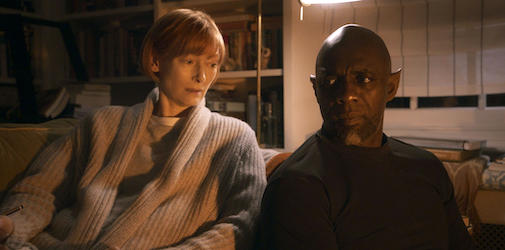
As the bizarre child of Arabian Nights and Neil Gaiman's American Gods, Three Thousand Years of Longing contains several stories told by the Djinn about his attempt to fulfill women’s desires while deeply loving them. Is he a fool or a seducer... or both? The lingering charm of the movie is there, in Arithea’s awareness of how every story about wish-fulfillment is a trick or a cautionary tale for the person doing the wishing.
Sometimes this makes for a fine movie, yet Three Thousand Years of Longing lacks cohesion and in the end, greatness. The Arabian Nights style stories told by the Djinn are fascinating but unable to operate on the same level as the acting duet. The modern-day CGI-filled frame of the story requires more space and time to fulfill its potential. I wish Miller had leaned more into the underlying suggestion that what we see is not always the reality and what we're told is not always the truth. Instead he focuses on a world full of scientific wonders that's barren of actual magic and stories to believe in (perhaps an indirect criticism of the world's current obsession with comic book movies?) Still, there's something to be said for strangely fascinating disappointments!
BOY FROM HEAVEN by Tarik Saleh (Sweden)
COMPETITION FILM
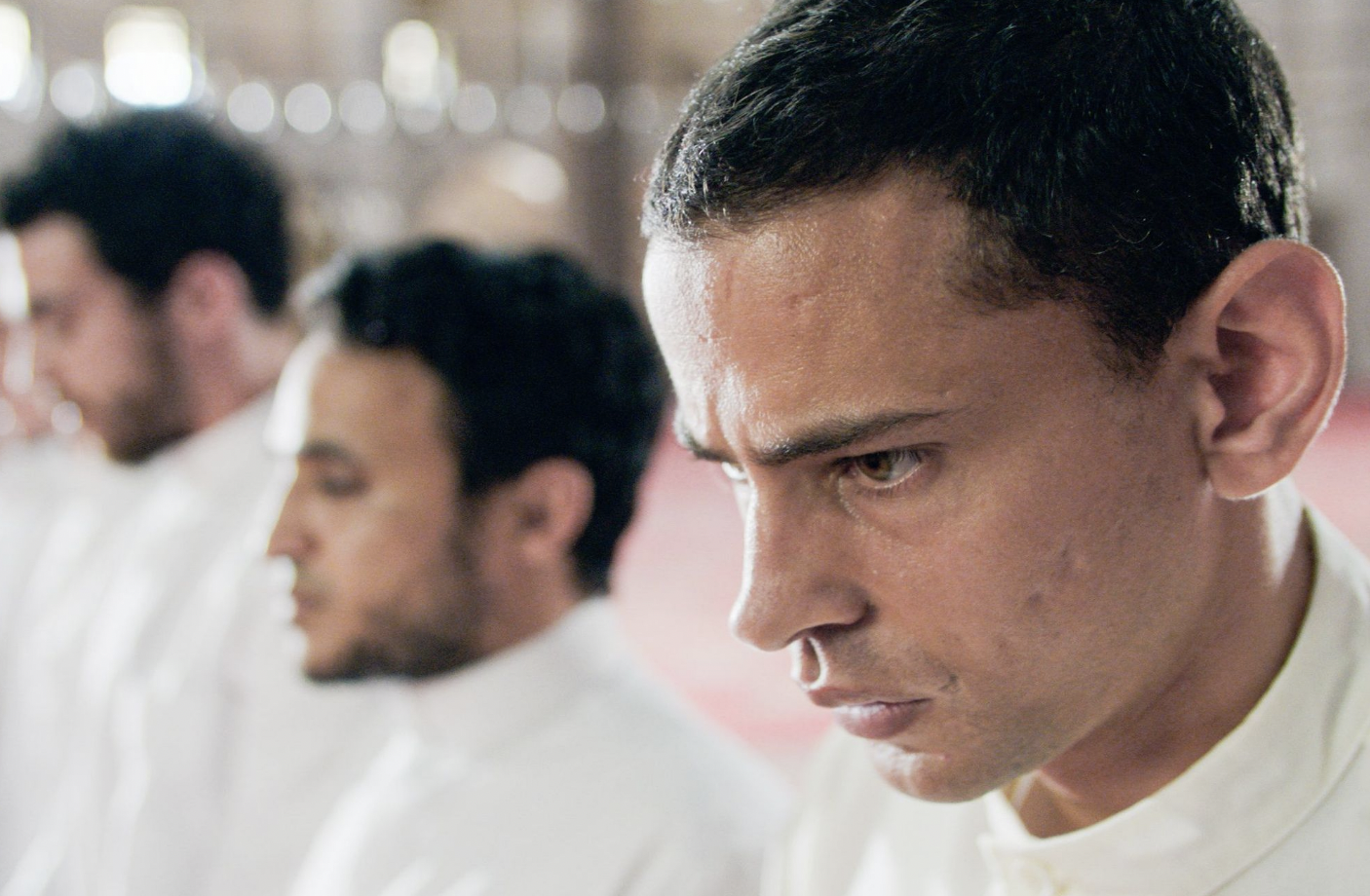
Sweden's Tarik Saleh is not generally named among "auteurs". His aesthetic is closer to old-style procedural series than others directors in competition at Cannes. On the other hand, while some big names ended up disappointing with half-formed ambitious movies, Boy from Heaven proves to be one of the most convincing, solid titles seen during this edition. A little bit The Name of the Rose and a lot Tinker Tailor Soldier Spy, Boy from Heaven is the story of a reluctant “angel”, a poor fishermen’s son who turns into a spy for the government. He is placed inside Al Azhar, which is one of the most prestigious universities for Koran studies, a “beacon of the Islamic world”. The huge influence Al Azhar and his Imam plays in Egypt and throughout the Islamic world makes all kinds of people want to have eyes and ears inside it: from terroristic association to government home security intelligence. Sometimes it's difficult to draw a line between them, both trying to steer the election of the next Grand Imam to their favorite candidate. As expected, the game of politics and power overshadows the religious purpose of the institution. On the other side, how homicide, politics, and national security are dealt with is more often than not influenced by theological, moral discussion as various powers, try to impose their interpretation of the reality on the other. It's a simple, yet very well-made movie.
TRIANGLE OF SADNESS by Ruben Östlund (Sweden/UK)
COMPETITION FILM
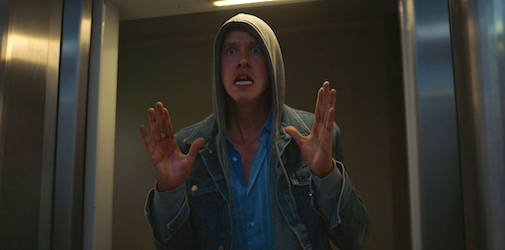
I have to concede that Ruben Östlund's Triangle of Sadness is incredibly energetic and entertaining. Funny, too, though it has the type of comic energy that can feel like a flattering con, with humor that makes you feel "oh so intelligent" as you laugh. Triangle of Sadness is full of “shocking" scenes, if we still consider a visual insistence on puking and shitting as an effective subversive tactic. My impression of Ruben Östlund’s filmography is always the same: he perceives himself as a real Agent Provocateur, able to whip audiences into a frenzy with caustic contemporary commentary about our shallow society. This time his target is the lives of the obscenely rich 1% as well as famous "influencers" who can mimic that same lifestyle without a similar bank account. There is even a “quote battle” between an American communist (Woody Harrelson) and a Russian capitalist, so Östlund does not choose subtlety here. As with his Palme d'Or winning and Oscar nominated film The Square (2017), I grew suspicious. His crafty directing and acidic commentary has easy targets, people who are unrelatable, extravagantly wealthy, and unsympathetic morons.
The shallow discourse about the filthiness of money is actually reminiscent of the woke and political activist high schooler in When You Finish Saving the World which is not a good sign. Ruben Östlund is incredibly good at selling lines, but his movie resembles the scene of the two protagonists arguing with one another while searching for quotes about communism and Reaganism on their smartphones. It can not be denied that it's one of the smartest movies of the festival but its sharpness hides simplicity. The most genuine highlight of the movie Harris Dickinson's performance. He plays a male model unable to escape the tyranny of the women in his life. Speaking of women… the movie's discourse about gender dynamics in contemporary society is childlish. I did not realize how mad the movie made me until sending you this dispatch.
R.M.N. by Cristian Mungiu (Romania)
COMPETITION FILM
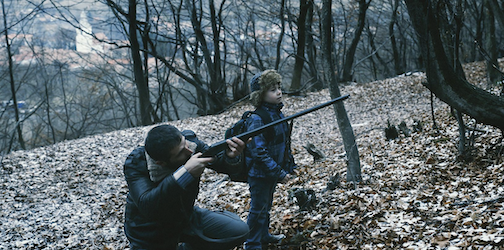
The new movie from Romanian auteur Cristian Mungiu is the perfect antidote to all of Triangle of Sadness’s shortcomings and easy ways out. It's not perfect but inside Mungiu's collective story there is a visual and narrative complexity that the Swedish competitor lacks. R.M.N. depicts a small village in Transylvania in which the economical and cultural dynamics of globalization turn the arrival of three workers from Sri Lanka into a collective xenophobic episode of hysteria. Mungiu is particularly good at depicting the friction created by a huge spectrum of cultural identities inside the same village, and sometimes even within a single person, as the protagonist Matthew (Marin Grigore) proves.
Traditional gender roles and economic dynamics are melting away, yet nothing as strong is replacing them, to guarantee any unity within the community. In the beginning, we see the son of the protagonist frozen in shock by something he sees in the woods around his house. Mungiu is a strong enough director that he can reveal the complexity of any situation, even if he can't provide an answer or solution. A good Mungiu movie is still an impressive one. In RMN there is this astonishing 15 minutes long shot of a town council in which the movie sums up all of its ethnic groups, economic interests, and general hypocrisy, while a rifle continues to show up without being used, foreshadowing the long, restless finale of this story without a solution.
A side note: the female protagonist of the movie continuously plays In the Mood for Love’s Yumeji’s theme on her cello: the perfect sum of her multicultural, educated, cosmopolite identity. This makes her as much of an outcast as the three poor migrants from Sri Lanka. But the music was something so out of context and recognizable as to prove a bit distracting.
more tomorrow
Day 1 Opening Night, Coupez!
Day 2 Tom Cruise, The Eight Mountains, Scarlet
Day 3 Armageddon Time, EO, Tchaivosky's Wife
Day 4 Corsage, Brother and Sister, When You Finish Saving the World
Day 5 3000 Years of Longing, RMN, Triangle of Sadness, Boy From Heaven
Day 6 Holy Spider, Men, Smoking Makes You Cough, Marcel!
Day 7 Decision to Leave, Crimes of the Future, Forever Young
Day 8 Silent Twins, Tori and Lokita, Nostalgia



Reader Comments (1)
Three Thousand Years of Longing is the film that I really want to see as it looks so insane. I'm not sure about Triangle of Sadness as I watched The Square yesterday which was good but not worthy of the Palme d'Or (it should've gone to You Were Never Really Here).